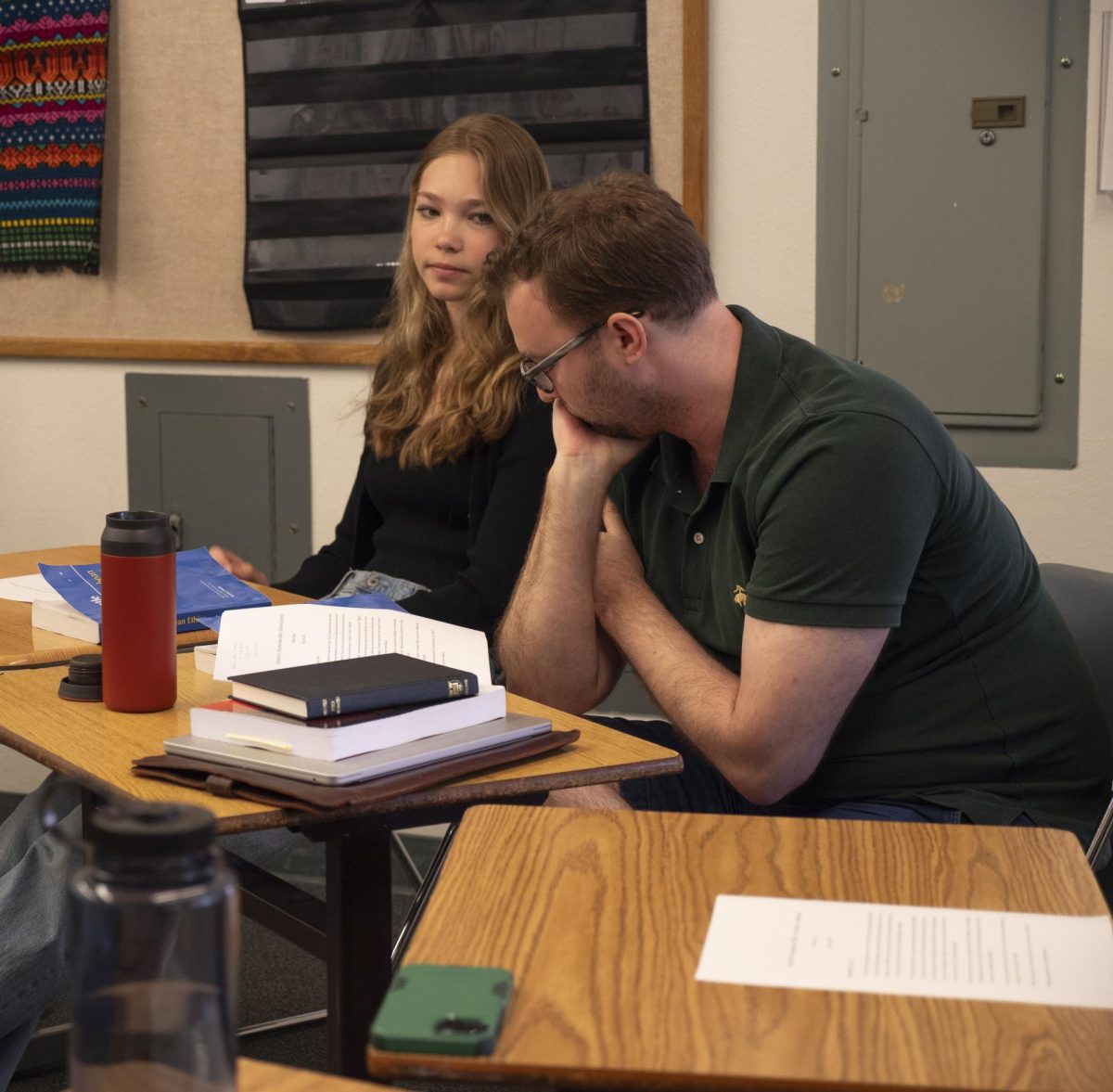This year marks a change to Branson’s gradebook policy. Previously, Blackbaud calculated a student’s grade average, and that information was available to students. However, this year students will not be able to see their cumulative grade in a class.
Whitney Livermore, the dean of student life, emphasized her desire for “students to be freed from that hyperfixation” on grades. She says this attachment is particularly an issue for students who may recognize that they have improved their understanding of the course material, yet find it difficult to move past the one grade that drops their total.
Students around campus have their own opinions. Rayna Xu ‘27 said that they will “still be tempted to calculate their grade, a frustrating and time consuming practice.”
Interestingly, Symonds said that these behaviors were the driving factors of the policy change. He shared that this adjustment was in response to “seven or eight difficult conversations with students last year who were disappointed about their final grade.” He said these conversations “weren’t about learning; [they were] about math.”
Symonds hopes this will encourage students to “engage in a conversation with their teachers.” He wants the focus to be “on the learning that takes place, not the mathematics of adding all the numbers.
Both Livermore and Symonds stressed the importance of developing an intuitive understanding of where your grade currently stands.
Livermore provides clarification to students who feel they will no longer be able to access their grades. There are “other opportunities for students to learn about what their grade is, but not the constant [way] to always be checking.” Rather than relying on Blackbaud, students can speak with teachers to gain perspective on how they’re performing.
Symonds said that many students spent “hours and hours building spreadsheets, comparing their grades against what Blackbaud said. Math was becoming what kids were worried about more than learning.”
Jennifer Diaz, a Branson Spanish teacher and the Best Buddies faculty adviser, has mixed feelings about the adjustment.
On the issue, she said, “I’m in the middle. I’ve been at this school where it’s been both ways and haven’t had a problem with my students.”
Diaz feels that the idea was to prevent students from being “obsessed with grades and more concerned with what are they learning, how are they learning and if they want to know how they’re doing, then they talk to a teacher. It’s supposed to encourage those kinds of conversations.”
Reese Furhman ‘25 shared she felt confused because “different teachers have been doing different things,” and said that she “doesn’t think there was a lot of uniform communication.”
Furhman elaborates that “as a first-semester senior, it’s stressful because grades for college apps are so important.” She added, “I understand the intent for the policy. I think it should have been better communicated.”
“There’s something comforting about being able to see what you have rather than speculating,” Furhman continued.
However, Furhman added, “The classes I’ve enjoyed and had the most personal growth in are the classes where I’ve started with not a great grade and worked my way up. I don’t think grades are necessarily a reflection of how well you’re doing in a class … or the class’s impact on you.”
As Branson’s gradebook policy adjusts with the hope to lessen performance anxiety, Livermore said faculty members are “open to having constructive conversations, if done respectfully.”
Over the course of this school year, Branson students, administrators and teachers alike will evaluate how this change will impact the community.
“We’re always evaluating everything we do. Nothing is permanent,” Symonds said.
Though this change may feel jarring and confusing, Livermore, Symonds, Diaz and other adults on campus hope students can let go of the obsession surrounding grades and prioritize their learning.



